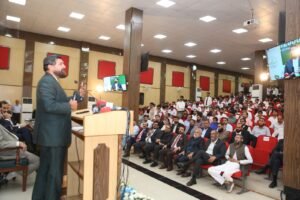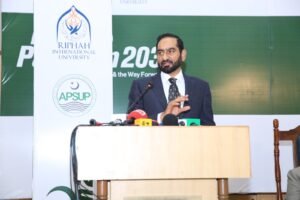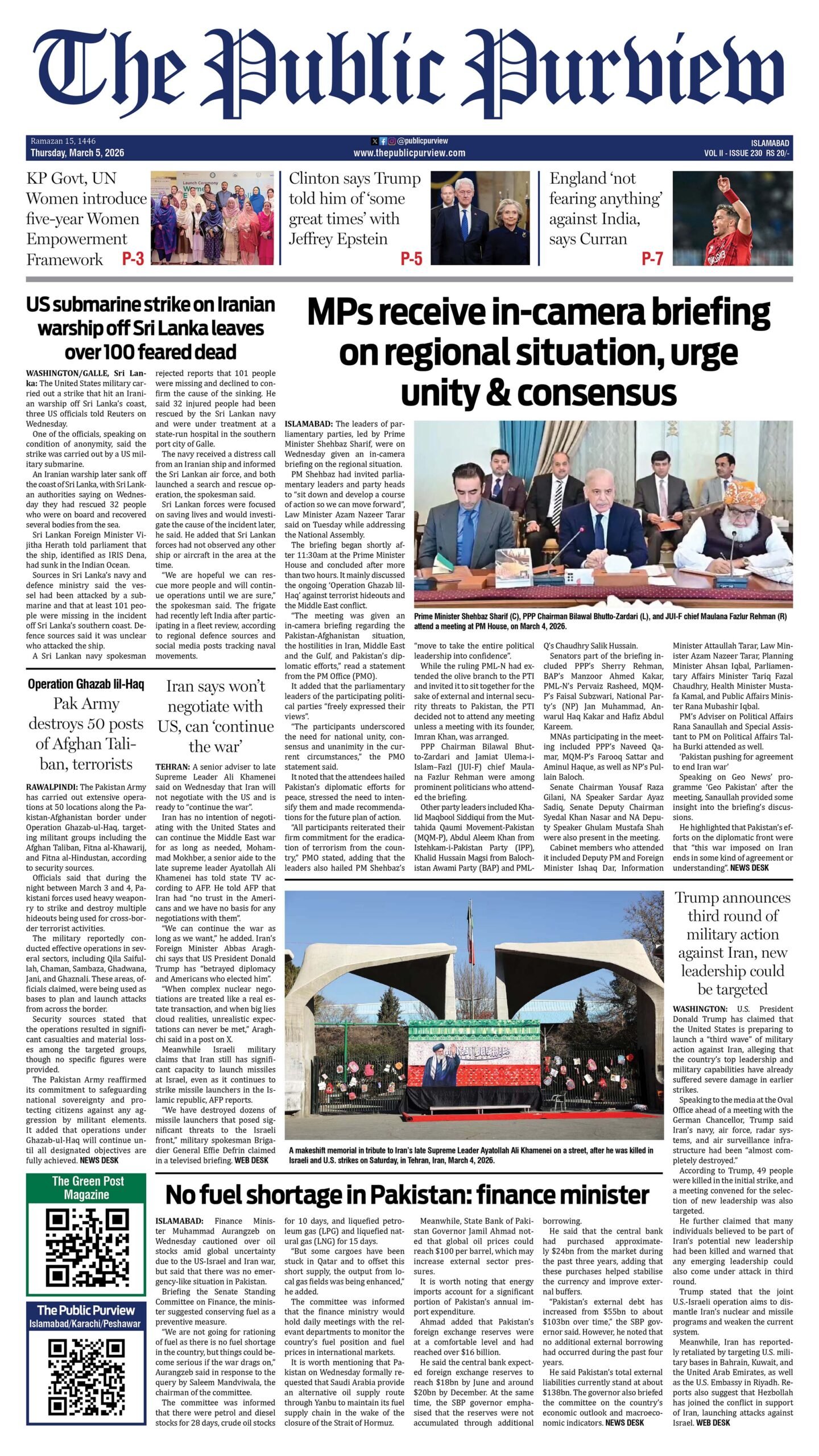ISLAMABAD — At the Imagine Pakistan-2030 seminar held at Riphah International University, education and policy leaders called for the creation of new provinces to improve governance and service delivery. The event, organized by the All Pakistan Private Sector Universities (APSUP) and Riphah International University, explored long-term national challenges and opportunities.
To begin, Riphah Chancellor Hassan Muhammad Khan emphasized that institutions require time, vision, and perseverance to flourish. He reflected on the university’s founding journey and shared how his father, Maj Gen (r) Dr Muhammad Zulfiqar Ali Khan, overcame early obstacles to establish Riphah. Khan urged students to contribute actively to national development. He quoted John F. Kennedy’s famous call to civic responsibility.

Moreover, Khan argued that decentralization and the formation of additional provinces would resolve many governance issues. He noted that localized administration could deliver services more efficiently and reduce dependency on provincial capitals.
Echoing this view, Mian Amer Mehmood, Chairman of the Punjab Group of Colleges, said that public welfare must remain the state’s core objective. He lamented the persistent lack of facilities and poor service delivery in Pakistan. “Every division should become a province,” he proposed. “People can then access solutions at their doorsteps.”

Mehmood highlighted alarming statistics. He said 25 million children remain out of school, and 44% suffer from stunted growth due to malnutrition. Citing a World Bank report, he identified poor governance, weak institutions, and politically motivated development planning as key barriers to Pakistan’s economic progress.
In addition, he pointed to global models for comparison. China operates with 31 provinces, the United States with 50 states, and India has expanded from 9 to 37 states since independence. These examples, he said, show how administrative expansion can improve service delivery.
Meanwhile, Prof Chaudhry Abdul Rehman, Chairman of APSUP, focused on youth development. He shared findings from a post-May 9 survey. The research revealed that Pakistan’s youth suffer not from a lack of skills but from a lack of purpose. He urged educators to follow the example of Prophet Muhammad (peace be upon him) and inspire students through prophetic principles.

In conclusion, the Imagine Pakistan-2030 seminar ended with a collective call to reimagine Pakistan’s administrative structure. Speakers agreed that creating more provinces could decentralize governance, improve access to services, and empower communities. They stressed that youth engagement, institutional reform, and inclusive planning must guide the country’s path to 2030.







 Today's E-Paper
Today's E-Paper